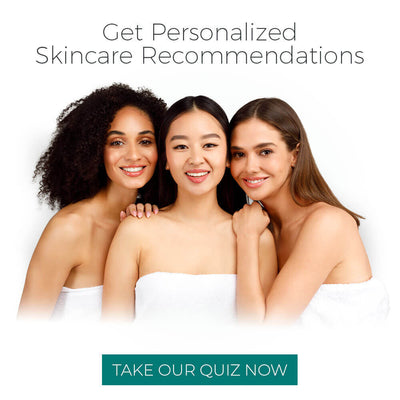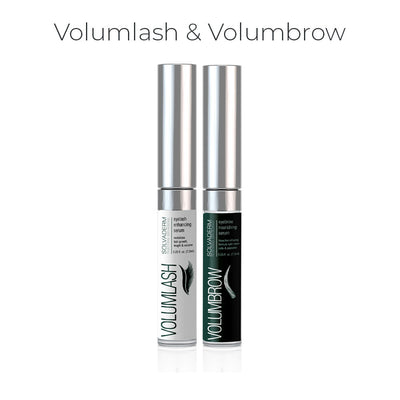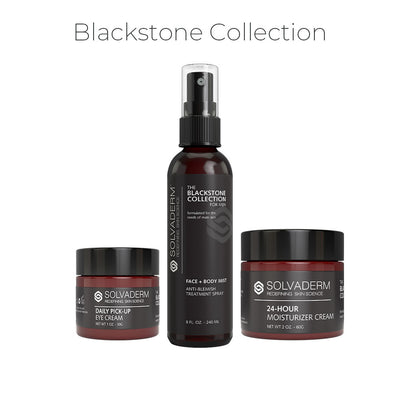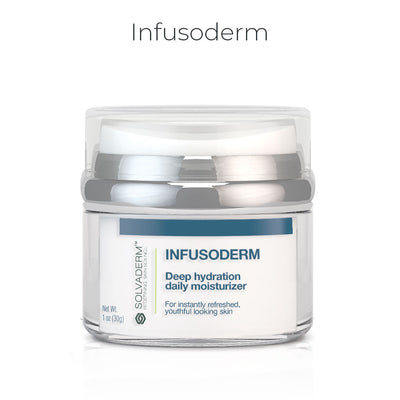Cheek acne is a common condition that affects both teenagers and adults alike. There are a variety of causes which mainly stems from touching the face frequently and dirty sheets and pillowcases. However, this can also be caused by factors such as nutrition and hormonal imbalances. Treatment involves a targeted skincare routine including cleansers, toners, and acne-fighting medications like salicylic acid. Non-clogging skincare products are also essential to prevent clogging and sun damage. For severe cases, dermatologist consultation may offer personalized recommendations for effective management.
Introduction
Acne, also called acne vulgaris, is one of the most common skin conditions that affects about 50 million Americans yearly [1], and although it affects children and young adults more often, there has also been a growing number occurring in adults, more commonly, women. Although generally harmless, acne can affect an individual’s appearance and self-confidence. Acne is an inflammatory skin condition that occurs when the hair follicles under the skin become clogged, which can lead to lesions (also called zits or pimples) appearing on the surface. Cheek acne is a little different because while acne can occur on various parts of the body, its presence on the cheeks can be even more distressing and stem from a multitude of causes.
What Does Acne on the Cheek Mean?
There are several types of acne and the two main types are acne vulgaris and acne mechanica. Breakouts in other places of the skin are caused by acne vulgaris which is indicative of excess oil production that blocks pores and clogs up hair follicles. This can also be caused by hormonal imbalances as well. However, if your acne is on the cheeks, acne mechanica could be the culprit, which roots in friction of the skin caused by cell phone use, pillowcases, and even masks that touch the face. Therefore, an individual may be coming into contact with a lot of germs on the face and cheeks specifically, leading to inflammation and the formation of pimples.
What Does Cheek Acne Look Like?
Cheek acne will mainly appear the same as regular acne. However, zits and pimples might look different depending on the part of the face it forms. On the cheeks specifically, there are more inflammatory papules, pustules, nodules, and cystic acne [2] that are seen. Papules are inflamed blemishes and lesions which are small and pink on the skin and typically feel sensitive and tender when touched. Pustules are pimples that are inflamed and pus-filled and are caused by a combination of bacteria, sebum, and dead cells trapped in the skin which also exhibit redness, swelling, and sensitivity around the area. Nodules are more severe which result in larger and more painful hard lumps on the skin surface. Cystic acne is the most painful and severe form as this clogs the entire pores and develops into pus-filled breakouts.
What Ingredients Should You Look Out for to Treat Acne?
With acne-prone skin, it's important to choose skincare products that contain essential ingredients [3] that can effectively address the underlying causes of acne on cheek and help improve the condition of your skin.
- Salicylic Acid: This beta-hydroxy acid is one of the most effective ingredients to treat acne. Salicylic acid works by decreasing skin fat (lipids) through downregulating pathways and reducing inflammation as well. It also helps to prevent clogged pores and further reduces acne breakouts.
- Vitamin C: As an antioxidant, vitamin C can help combat inflammation and promote skin healing. This is especially useful since it may help fade post-inflammatory hyperpigmentation caused by acne.
- Tea Tree Oil: With natural antibacterial, anti-inflammatory, and antioxidant properties, tea tree oil is an effective way to combat acne which can also reduce redness and swelling.
- Sulfur: Sulfur is another effective ingredient that is linked to antifungal and antibacterial activities and can dissolve skin flakes and scales. It has also been proven to help treat and kill acne-causing bacteria.
What are the Common Causes of Cheek Acne?
Acne, in general, can be triggered by a combination of factors, and understanding the reason why you might be breaking out on the cheeks is crucial in managing and preventing its occurrence.
- Dirty pillowcases and sheets can contain a lot of bacteria, dust, and other allergens that irritate the skin and result in acne.
- Reactions to hair care or makeup products can also be a factor as these can cause pores to clog and lead to acne appearing on the face.
- Frequently touching the face whether it is because of phone use or hands occasionally brushing the face can cause bacteria to get trapped in the pores and result in breakouts.
- Nutrition is also another important factor to discuss as certain types of foods such as processed foods, sugar, and even dairy can cause breakouts to form on the skin.
- Hormonal fluctuations and imbalances, especially during puberty, menstruation, or pregnancy, can increase sebum production, contributing to acne flare-ups.
What are Skincare Routine Tips to Treat Cheek Acne?
To effectively combat cheek acne, it's essential to establish a consistent and suitable skincare routine. It is best to have both a morning and evening skincare routine to help get rid of acne.
Morning Routine:
-
Cleanse: Start your day by washing your face with a best cleanser for acne, such as Rejuvoderm Clarifying Cleanser to remove dirt, oil, and bacteria that accumulated overnight.
-
Use Toner: Apply a toner, such as Maxatone, to further cleanse and balance the skin's pH levels while making the skin feel hydrated.
-
Apply an Acne Treatment Medication: Use a topical acne treatment like Zeroblem which contains ingredients like salicylic acid to target and control acne breakouts. Using spot treatment is the best to target certain spots like lesions.
-
Apply a Non-Greasy Moisturizer: Choose an oil-free, non-comedogenic moisturizer to keep the skin hydrated without clogging pores and prevent vulnerability to infection.
-
Apply Sunscreen: Protect your skin from harmful UV rays with a non-comedogenic sunscreen.
Evening/Night Routine:
- Cleanse: Thoroughly cleanse your face again to remove makeup, pollutants, and excess oil that accumulated throughout the day.
- Use Toner: Reapply the toner to ensure any remaining impurities are removed from the skin.
- Apply an Acne Treatment Medication: Continue with the same acne treatment applied in the morning.
- Moisturize/Apply Night Cream: Use a lightweight moisturizer or a night cream for added skin benefits and to keep the skin hydrated.
Frequently asked questions (FAQ)
How do you know if a product is acne-safe?
To determine if a product is acne-safe, consider the following tips:
- Check the Label: Look for products labeled "non-comedogenic," "oil-free," or "won't clog pores." These indications suggest that the product is less likely to cause acne breakouts.
- Analyze the Ingredients: Avoid products that contain comedogenic ingredients such as mineral oil, coconut oil, and lanolin. Instead, opt for products with acne-fighting ingredients like salicylic acid, tea tree oil, or sulfur.
- Look for Lightweight Formulas: Heavy or greasy products can clog pores, leading to worsening breakouts. Choose lightweight, gel-based, or water-based formulations.
- Read Reviews: Check online reviews or ask for recommendations from individuals with similar skin types or acne concerns to see if the product has worked for others.
- Dermatologist Recommendations: Consult a dermatologist for personalized advice on suitable products for your specific skin type and acne condition.
- Observe Skin's Reaction: After introducing a new product, monitor your skin for any adverse reactions or an increase in acne. If you notice breakouts or irritation, discontinue use.
Which skin type has the most acne?
Those with oily skin tend to be more prone to acne compared to other skin types. Oily skin is characterized by an overactive sebaceous gland, leading to excess production of sebum (skin oil). This excess oil can clog pores and create an ideal environment for acne-causing bacteria to thrive. As a result, people with oily skin are more likely to experience frequent breakouts of blackheads, whiteheads, and pimples, especially in areas with a higher concentration of oil glands, such as the forehead, nose, and cheeks. However, it is essential to note that acne can affect individuals with different skin types as well. Other factors, such as genetics, hormonal imbalances, lifestyle, and skincare habits, also play a significant role in the development of acne.
What is the difference between acne and acne-prone skin?
Acne refers to a common skin condition characterized by the formation of pimples, blackheads, whiteheads, and sometimes cysts on the skin. It is caused by various factors, including excess sebum production, clogged pores, bacterial infection, hormonal fluctuations, and even genetic predisposition. Acne is a specific skin condition that occurs due to the interplay of these factors, leading to the visible presence of blemishes on the skin.
While acne-prone skin refers to a skin type that is more susceptible to developing acne. It is a broader classification that encompasses individuals whose skin is predisposed to experiencing frequent breakouts and blemishes due to factors like excess sebum production, sensitivity to certain ingredients, or an imbalanced skin microbiome. Acne-prone skin may experience regular or occasional breakouts and requires specific care to manage and prevent acne flare-ups.
Conclusion
Managing and treating cheek acne is essential for achieving clearer and healthier skin. By understanding the common causes of cheek acne, such as excess oil production, clogged pores, bacterial infection, hormonal fluctuations, dirty sheets, and phone use, you can adopt a targeted approach to combat this skin concern. Building a suitable skincare routine with acne-fighting ingredients like salicylic acid, vitamin C, sulfur, and tea tree oil, can help effectively address the underlying factors contributing to cheek acne. Additionally, maintaining good skincare habits, such as using both a morning and nighttime routine [4] consisting of regular cleansing, using non-clogging products, and applying sunscreen, plays a vital role in preventing further breakouts and promoting skin health. Washing bed sheets and pillowcases and cleaning phones before and after use can also aid in clearer skin. For more severe or persistent cases of cheek acne, seeking advice from a dermatologist can provide personalized treatment recommendations.
References
1] ↑https://www.aad.org/media/stats-numbers
2] ↑https://www.skin.software/journal/different-types-of-acne
3] ↑https://www.realsimple.com/best-ingredients-for-acne-7369843
4] ↑https://www.healthline.com/health/beauty-skin-care/nighttime-skin-care-routine









